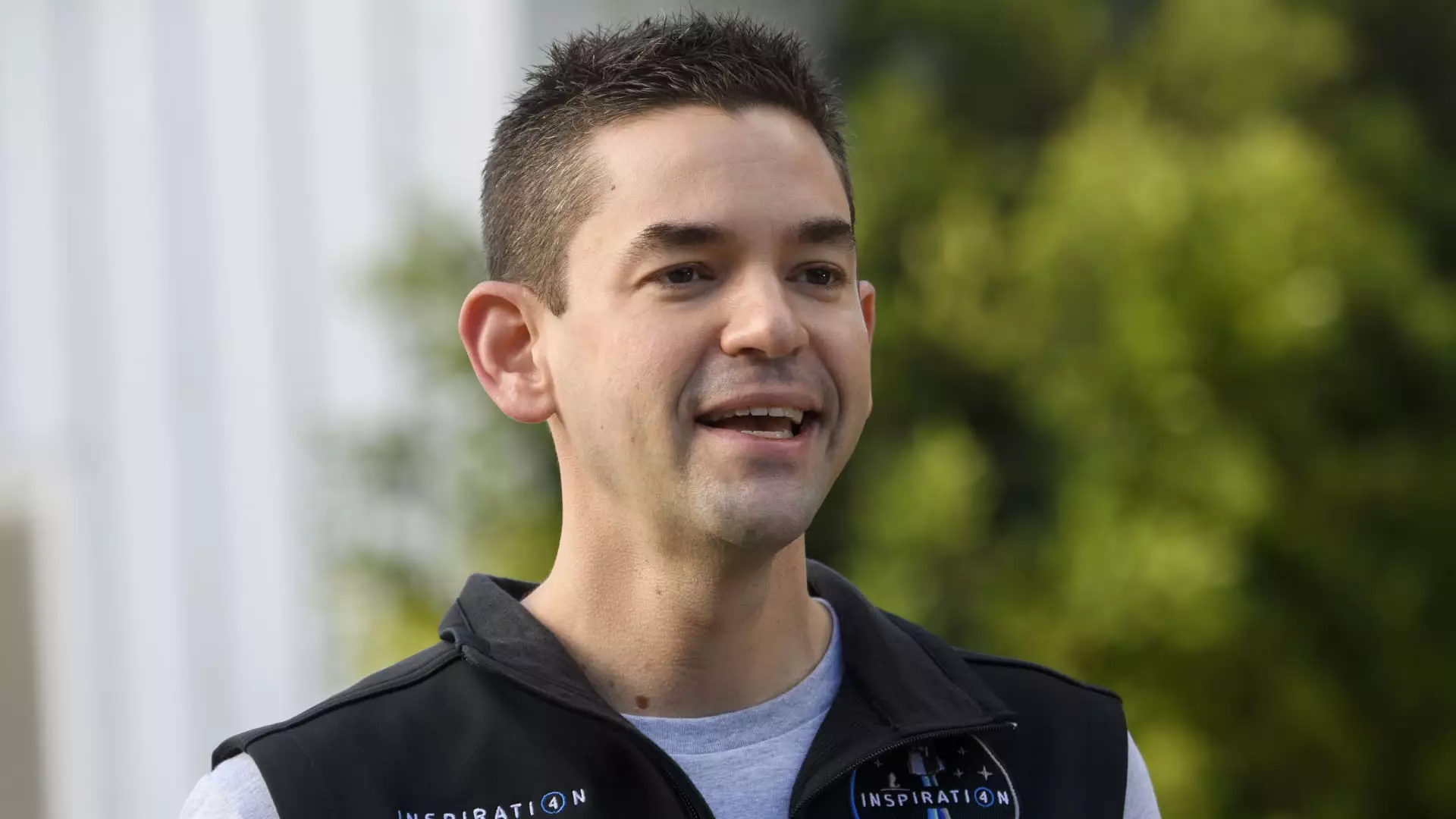Jared Isaacman’s recent foray into the political arena has been nothing short of a transient spectacle, illustrating the precarious balance between ambition and association in American politics. After just a brief nominating episode by former President Trump, Isaacman found himself abruptly withdrawn from consideration for a NASA position—a decision that resonated loudly in the crowded theater of public opinion. His experience was described as “thrilling,” but the political sciences show us that thrill often gives way to folly, particularly when ambition collides with the unforgiving currents of partisan politics.
Isaacman, the youthful entrepreneur who founded Shift4 at the tender age of 16, had pinned his aspirations on a lifeline to influence in a domain that encapsulates human creativity and technological advancement. Yet, Trump’s retraction came not through a formal announcement, but via a vague proclamation on Truth Social about “prior associations”—an ominous phrase that appeared to toy with the shadows of Isaacman’s political donations. It brings to question: how sustainable can political aspirations be when tainted by the ghosts of financial allegiances?
Money Talks, but Associations Scream
The suspicion surrounding Isaacman’s withdrawal rests heavily on his past donations to Democratic campaigns, which adds layers of intrigue and conflict to his narrative. During a polarizing era in which past political affiliations can seal one’s fate, the implications of campaign contributions loom larger than life. Here lies a crucial lesson: while capital is essential for influence, in the twisted labyrinth of politics, it can often become an albatross around one’s neck.
Isaacman sought to distance himself from the Democrat associations, asserting his support for Trump and describing himself as “right-leaning.” However, Trump’s decision seemed to indicate a reluctance to tolerate any deviation from his ideological orthodoxy, shaking hands with the longstanding truth that politics is as much about loyalty as it is about capability. Here, we confront an uncomfortable reflection of our times: can one really navigate modern political waters without facing the storms stirred by past donations, friendships, and allegiances?
The Musk Factor: Allies or Adversaries?
In the backdrop of this drama is Elon Musk, whose financial and personal connection to Isaacman holds its own complexities. As Isaacman made headlines, Musk was concurrently distancing himself from Trump, shifting from utility to critic—a stark reminder of how fluid political loyalties can become. The juxtaposition of their paths serves to emphasize an inherent tension within the ruling echelons: how close is too close, especially when timing and public opinion begin to unravel?
Isaacman’s speculation regarding the timing of these developments raises questions about the broader political implications at play. What if the orchestrated exit of Musk from his official governmental role was a calculated maneuver to sidestep potential backlash triggered by Isaacman’s associations? The timing could not be a coincidence as the public sentiment towards Trump’s legislative endeavors faltered. The swirling nature of these connections captures a fundamental truth: political destiny is rarely straightforward and is often subject to the whims and winds of power dynamics.
The Line Between Personal Ambition and Public Scrutiny
Isaacman’s emotional assertion, that he “would do it all over again,” serves as an illuminating moment. It reveals a mindset that has driven many into the political spotlight—one where ambition fuels an insatiable thirst for influence, even in the face of inevitable backlash. Yet to indulge in political dreams requires a remarkable naivete or an unyielding drive that sometimes feels misplaced.
His continued dedication to Shift4 suggests a realization that battlefield scars run deep, often manifesting as cautionary tales for those who dare to breach the lines of political ambition. The move to assume the executive chairmanship instead of a fierce return serves as a prudent reminder that ambition must temper itself with realism. It echoes a broader sentiment today: those who fail to recognize the frailty of alliances or who disregard the reverberating consequences of their choices must grapple with an unsettling reality—the political world is as unforgiving as it is enticing.
Ultimately, Isaacman’s brief flirtation with political power reveals deep fissures within the interconnected realms of finance and politics—fissures that demand both introspection and a recalibrated understanding of association and ambition.

